- Home
- Jodi Picoult
Mercy Page 3
Mercy Read online
Page 3
With a feral cry, James MacDonald ripped out of Cam's grasp and ran to the other side of the truck. He pulled the sergeant away from the door, throwing him backward with the bodily force that a tall, strong man learns to keep in check. "Don't you touch her," he screamed at Zandy, his fists clenched, his teeth obscenely white against mottled skin. He turned back to the door and wrenched it open, and that was when Cam saw the door hadn't been stuck, but locked; that James MacDonald had ripped it from its bearings. He caught the body of his wife as it slumped up against him; pressed his cheek against hers. He spoke against the white curve of her neck. "Don't you touch her," he whispered.
Cam's eyes met Zandy's over the hood of the truck. He started to walk around to the passenger side as Zandy moved closer to James MacDonald. But James did not resist as Cam pulled him out of the cab of the truck. "Mr. MacDonald, I'm going to have to put you under arrest." He snapped handcuffs over the man's wrists. "Uh, Sergeant," he said, nodding at the body in the truck, "you want to take care of this?"
James began to strain against the handcuffs. "No," he whispered to Cam. "You can't."
Cam had to lean close to hear him. "We've got to go inside, Mr. MacDonald."
"Please don't leave her alone with him."
Out of the corner of his eye, Cam saw Allie step out of the crowd. She was shivering as she walked up to them, and she did not look Cam in the eye. "I'm Allie MacDonald," she said. "I'm Cam's wife." She laid her hand on James's arm. "I can stay with Maggie, if you'd like."
James looked her over, and then nodded his head. Cam let his breath out in a long sigh, and motioned for Zandy to hold James's arm. Then Cam steered Allie away from the truck. "You don't really want to do this," he said. "You could be implicated as a witness when he goes to trial."
"Oh, Cam," Allie whispered. "You're not really going to arrest him, are you?"
Cam grabbed her upper arms. "He killed a woman, Allie." "But he came to you for protection."
Cam snorted. "That's a little like locking the barn after the horse has run out."
Allie squared her shoulders. "I'd just listen to his story, if I were you. It's obvious that he loved her."
Cam bowed his head. "Still," he said, "that isn't going to bring her back to life."
James MacDonald glanced one last time at the still and lovely body of his wife in the front seat of his truck and remembered his wedding day eleven years earlier, during which everything had gone wrong.
Maggie had picked Memorial Day weekend, hoping to stand outside for the ceremony, but the balmy weather that was forecast had dissolved into torrential rain. Wanting privacy, they'd opted for a justice of the peace, and had made an appointment. But they showed up at the man's door only to be told by his wife that he'd come down with the stomach flu, and so Jamie had driven from Cummington to the next town to the next, trying to find someone who hadn't gone away for the holiday and who would be willing to marry them.
By the time Jamie and Maggie were standing in the front parlor of a justice of the peace in Great Barrington, the cuffs of Jamie's trousers were soaked from puddles and Maggie's bouquet of violets was limp over her fist. In the background, they could hear the splintered laughter of the justice's guests, who were having a free-for-all Memorial Day cookout in the warm, dry confines of his garage. "We are gathered here," the justice of the peace said, "to . . . Oh, shit."
Maggie's head had snapped up. Her hand, tucked inside Jamie's, shook a little.
Jamie realized then that she was waiting for him to ask, on her behalf, if there was a problem. Chauvinistic and old-world as it might have been, nothing more clearly drove home to Jamie what it was going to mean to be a husband. He would be Maggie's mouthpiece. And at other times, she might speak for him. "Is something wrong?" he had asked.
The justice of the peace squinted over James's shoulder. "Witness," he said. "Can't do it without one." He cupped his hands and yelled in the general direction of the garage, until a sweaty, wild-eyed man appeared in the doorway holding a Coors. "Jesus," the man said. "You don't have to shout." He thrust the can into the justice's hand.
"Not now, Tom," the justice said.
Tom frowned. "I thought you yelled for a beer."
"I yelled Come here."
"Excuse me," Jamie interrupted. "Could we get going again?"
Tom was wearing a Chicago Bulls tank top and Lycra biking shorts that outlined his belly. A loose, wet smile splayed across his face. "Hey," he said, looking from Jamie to Maggie. "You getting hitched?"
The justice asked him to just sit down in the corner and be quiet, and he'd put his name on the marriage license in a few minutes.
"No way," Tom said. He grabbed Maggie's free hand, scattering her violets, and yanked her away from Jamie. "You got to do a wedding right, or you don't do it at all." With a quick jerk he anchored Maggie to his side. "I'll give you away, honey," he said. "We'll do a whole grand entrance."
At that point Jamie did not want the man's name on his marriage license, much less his hands on his fiancee. But before he could object, Maggie smiled easily. "That would be lovely," she said to Tom, although she was looking at Jamie. Let's just get it over with, her eyes seemed to be saying, so that we can laugh about it later.
Jamie thought of the women he had dated, their images shifting like smoke. Some had told him their plans for an elaborate marriage on the second or third date; one had even drawn him a sketch on a cocktail napkin of a wedding gown she'd had made up and stored in the back of her closet, just in case. Not one of the women he'd known in his past would have made it through this fiasco of a wedding without being reduced to tears. Not one of the women he'd known in his past could hold a candle to Maggie.
He had never really asked her to marry him, he realized. They had simply both assumed that it was going to happen.
"Under the Boardwalk" was blaring from the garage as Maggie, on Tom's arm, began to walk across Che small parlor. Her heels crushed the violets she'd dropped on Che way out. Her perfume was overshadowed by the alcoholic cloud surrounding the man beside her. Next to Jamie, the justice of the peace began to flip through his book, having lost his place.
Maggie reached Jamie's side and slipped her arm through his. He could feel her shaking, so he patted her hand gently. He would apologize to her for this. He would spend the rest of his life making it up to her.
"We are gathered here . . ." Che justice of the peace said.
"For the free beer," Tom finished.
Maggie covered her mouth with her hand, and then burst into laughter. Her head tipped back so that Jamie could see the long, smooth line of her throat, and the spill of russet hair over her shoulders. There were tears in her eyes; Jamie thought it made them seem like jewels.
"Marriage," the justice recited sternly, "is not something to be entered into lightly and unadvisedly."
"I'm sorry," Maggie said, trying to compose herself. She tightened her hand on Jamie's and looked down at her shoes and snorted, then bit down on her lip.
The justice began to speak, but Jamie didn't listen. He had turned to face Maggie. Beyond her was not a glittering ballroom or the hallowed glass panel of a church, but a weaving line of people doing the bunny hop and a barbecue chat belched out large drafts of smoke.
He realized that there was nowhere else on earth he would have rather been.
Suddenly Jamie went cold. Maggie must have sensed it, because she dropped his hand and placed her palm against his cheek, whispering, "What is it?"
He shook his head. He, who could have told Maggie anything, did not know how to put into words this feeling: Did you ever look down at yourself and realize that finally you had it all? Did you ever feel that everything was so right in your life you'd have nowhere to go but downhill?
Misunderstanding, Maggie touched her fingers to his mouth. "I'm fine," she assured him. "This is fine."
He nodded once, a jerk of his head. He pushed away his thoughts and concentrated on the hope he'd been fed from his own wife's hand.
<
br /> As soon as Cam began to lead James MacDonald into the Wheelock Police Department, the crowd outside began to disperse. At the front desk, he unlocked the handcuffs and asked James to empty his pockets. He watched a handful of pennies, a packet of gum, and some lint fall onto the Formica, but nothing that would incriminate the man as a murderer.
Hannah was out to lunch, so the station was empty, silent except for the intermittent static and calls of the dispatcher on the radio. "Mr. MacDonald," Cam said, "why don't you come on in here?"
He led the prisoner into the booking room and gestured to a chair. Then Cam sat down and pulled a custody report out of a file in the drawer, laying it facedown on the desk in front of him. He'd listen to what the guy had to say, but he'd bet his gun this was going to end in an arrest.
He looked up to find the man staring at him with a grin turning up the corner of his mouth. "They say you look like him, you know," James said. "Look like who?"
"Cameron MacDonald. The first one. The famous one."
Cam made a big production of arranging the spill of pens and pencils on the desk. "I wouldn't know," he said. He took a deep breath. "Look, right now I'm just the chief of police, and you've confessed to murder. So let's forget the other crap."
"I can't. I came to Wheelock on purpose, because you were here."
Cam narrowed his eyes. "How exactly are you related to me?"
"Your grandfather is my great-uncle. Ask Angus, if you don't believe me. What is he now, eighty? Eighty-two?"
"What he is is senile, at least most of the time," Cam admitted. His great-uncle Angus had been the keeper at Carrymuir during the years that Cam and his father had prospered in Wheelock. When Ian MacDonald died, Cam had flown to Scotland, brought his uncle Angus home with him, and signed Carrymuir over to the Scottish National Trust.
"Mr. MacDonald--"
"Jamie." He leaned forward, as if he was about to confide a secret. "I was named for our own uncle Jamie," he said. "The one who was killed in the war."
Cam's mouth fell open. No one talked about his uncle Jamie, the hero, because it used to make his grandmother weep. Jamie had been the firstborn son, Che one who would have been clan chief if he hadn't been shot down over the Pacific in 1944. Cam's father, the second son, had taken the title by default.
Cam swallowed, recovering. "Well, Jamie," he said. "Tell me what brought you to Wheelock."
He hesitated only a second. "I came here to kill my wife."
Cam stared right into Jamie's eyes, almost the same color as his own--sea green, a MacDonald trait. He looked for a swift check of rage, a curl of remorse, or God willing, the blaze of insanity. He saw none of those things. "Jamie," he said, rolling the custody report into the typewriter, "you have the right to remain silent."
Jamie MacDonald had made a career of creating alternative worlds. He let young couples designing their first home walk through houses that had not yet been built; he gave paraplegic men a chance to walk again; he let medical students do surgery on patients that did not suffer or bleed. As the president and founder of Techcellence, a conceptual-design computer company specializing in virtual reality, he had joined the cutting edge of a radical technological movement and had become a symbol for the entire field. Maggie, whose computer skills extended to booting up WordPerfect, used to say it was much simpler Chan chat. "You're the Wizard of Oz," she would tell him. "You make people's wishes come true."
He'd sort of liked that image. It was true--people tended to seek out Techcellence to do things no other conceptual-design firm would do. Because Jamie wasn't afraid to take a challenge and shape it with his mind and his hands until it fit on a seven-by-nine screen, his company often produced the systems and models for virtual worlds that became prototypes for other firms to copy.
Jamie had a high-end computer system at his house in Cummington, complete with a bodysuit and glove and head-mounted device, but most of the design work was done in his lab. Located downtown, it had computers with more technological expertise, as well as the big equipment--the SGI Onyxs, graphics machines which could generate the real time in the virtual world. There were about ten people who worked full-time for Jamie, and when Techcellence secured a contract with Nintendo or the Defense Department or a teaching hospital, there were two hundred more people he could hire on as subcontractors--digital sound mixers, artists, story writers, texture mappers, producers, directors, programmers. In many ways, Jamie was like a chef--finding cooks who had already made dishes that he could combine into something even more flavorful, in spite of the fact that he'd grown none of the ingredients himself.
He often came into work on weekends, when it was quietest; and he'd bring Maggie with him. One Saturday, a few years after they were married, Jamie had come in to fiddle with a program for a private client, a formerly seeded millionaire tennis player who had become quadriplegic after a heli-skiing accident. Maggie, who openly admitted to being terrified of so many computers, sat curled with a book on a Salvation Army wing chair where some of the best brainstorming was done.
Jamie was stuck. It wasn't creating the virtual world--any savvy hacker could jump on the Internet and download to do that. This client had a specific request: he wanted to play tennis again.
Had Jamie wanted to milk him for his money, he could have simply set the program up like some of the other virtual reality systems developed for handicapped people. A sweatband around a quadriplegic's head could measure the magnetic field given off by the optic nerve, so that the guy would be able to move a cursor--or a virtual tennis racket--simply by shifting his eyes. But Jamie, who had always been something of a perfectionist, wanted to give his client more. It would not be enough to see a racket swing on a computer screen and know you had connected with a ball, like those archaic Pong games on the old Atari video game systems. He wanted his client to believe he was on his own feet again.
Ordinarily, this wasn't a problem when creating a virtual world. A good HMD tracked your head movements and isolated your views to computer-generated images, in a 190-degree field. With the addition of a glove, a bodysuit, and a motion platform, there were three kinds of feedback a designer could generate. Tactile feedback produced vibrations at specific parts of your body, which your brain would interpret along with visual and auditory clues--if you see and hear oozing slime, you'll feel it. Auditory and visual feedback employed subtleties, such as subfrequencies outside the hearing range, to give the sensation of motion, or flight, or vertigo. And force feedback--actual shoves applied to the body--could make you feel like you were in micro gravity, or blasting off in a rocket.
The problem was, on someone who couldn't sense anything beneath his neck, these types of feedback would be lost.
Jamie pulled the HMD off his head and rubbed his hands over his face. He wasn't even aware he'd sighed in frustration until Maggie put down her book and came to stand beside him. "Tough day at the office?" she said, rubbing his shoulders.
"Impossible," Jamie admitted. "How do I go about making someone feel something they're not physically capable of feeling?"
Maggie frowned. "I'm not following you."
"VR for the handicapped," Jamie explained, passing her the HMD. "Quadriplegic wants to play tennis."
He knew, by the smile that curved Maggie's lips beneath the high-tech helmet, that she was delighted with the visual images of the tennis center in Flushing Meadow--the lined courts, the perspiring crowds, the smoggy blue of the sky. He watched on the flat screen as Maggie flickered her eyes, making a tennis racket appear at the edge of her virtual vision and swing in a forehand. "He wants other friends to be able to connect into the virtual space. And he wants a neural network thrown in, a 'smart enemy,' in case no one else is around to play against him."
"Why are you stuck?"
Jamie shrugged. "Because I can't make him feel the sweat on the grip of his racket. Because I won't be able to make his legs tired from running."
"That's hardly your fault," Maggie said. "Couldn't you over-compensate some
where else? You know, like a scent--suntan lotion waving in from the stands, or that rubbery smell you get when you open a can of tennis balls?"
"He can already smell," Jamie said. "He wants to walk."
Maggie sank down on his lap. She pulled off the HMD and touched her hand to the screen, shaking her head. "It always amazes me how much better it looks with the helmet on." "That's the idea." Jamie smiled.
"Imagine," Maggie said. "To be so active, and to have that taken away from you. If I ever get into an accident and become a quadriplegic, you have my permission to shoot me."
Reflexively, Jamie's arms tightened around her. "You shouldn't even joke about that," he said. "And you don't really mean it."
Maggie raised her eyebrows. "You'd want to live as a vegetable?"
"You're not a vegetable. You still have your mind."
"And you're stuck in it," Maggie added. "No thank you."
"You have all five of your senses," Jamie argued. "You can still see, you can feel with the skin on your face, you can smell, you can taste, and you can hear."
"Taste is a stupid sense," Maggie muttered absently. "No one would miss it."
"You would if you didn't have it," Jamie said.
"I'd rather be blind, deaf, and dumb than quadriplegic."
Even with the whir of the computers in the back of the lab, the room was too silent for Jamie's liking. He kept thinking that if they continued to talk like this, they'd be tempting fate. "I hope you never have to make that choice," Jamie murmured.
Maggie took her hand and pressed it to his cheek. "You could stand not feeling me touch you here," she said, moving her fingers to his forehead and over his lips. "And here, or here." Then she slid her hand down his chest, between his thighs, to cup him. "But to forget what this feels like?"
He felt himself growing into her palm. He could not believe that the sensations Maggie could create by touching him were something he would ever have trouble remembering. Maybe that was the clue for his program, too--evoke a memory of what used to be, so that the mind made up the parameters the body physically couldn't. He would use the sounds and smells of a game of tennis, and mount a small fan in the HMD to give the sensation of wind caused by movement. If there were enough bombarding stimuli to elicit a recollection of running, of serving a tennis ball, why couldn't your head make you think it was really happening again?

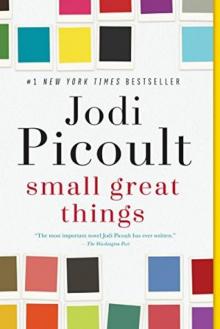 Small Great Things
Small Great Things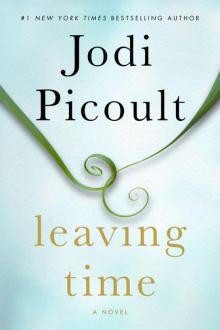 Leaving Time
Leaving Time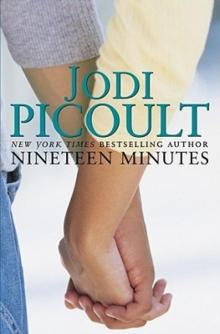 Nineteen Minutes
Nineteen Minutes Larger Than Life
Larger Than Life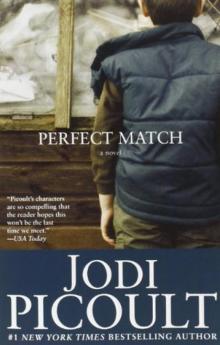 Perfect Match
Perfect Match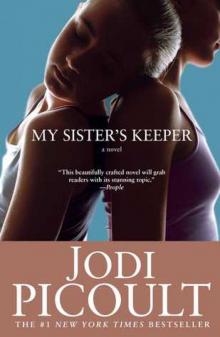 My Sister's Keeper
My Sister's Keeper The Pact
The Pact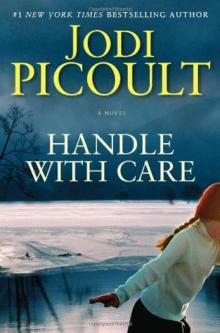 Handle With Care
Handle With Care Songs of the Humpback Whale
Songs of the Humpback Whale Mermaid
Mermaid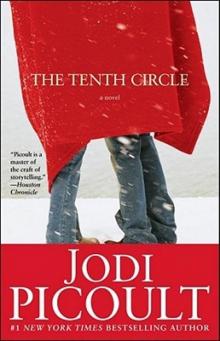 The Tenth Circle
The Tenth Circle The Color War
The Color War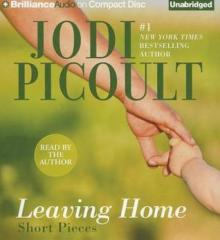 Leaving Home: Short Pieces
Leaving Home: Short Pieces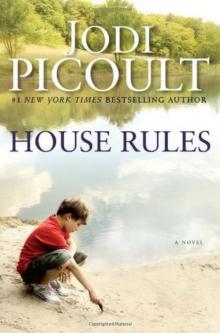 House Rules
House Rules Lone Wolf
Lone Wolf The Storyteller
The Storyteller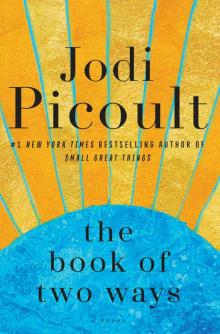 The Book of Two Ways
The Book of Two Ways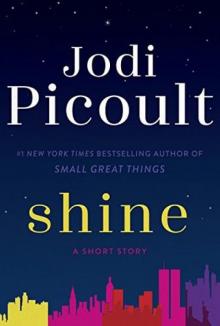 Shine
Shine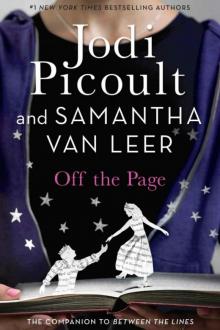 Off the Page
Off the Page Sing You Home
Sing You Home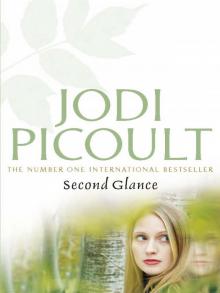 Second Glance: A Novel
Second Glance: A Novel Mercy
Mercy Vanishing Acts
Vanishing Acts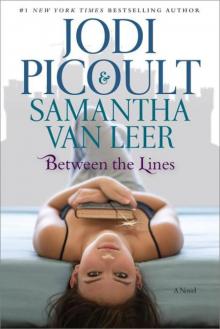 Between the Lines
Between the Lines Plain Truth
Plain Truth Salem Falls
Salem Falls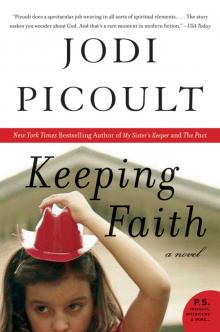 Keeping Faith
Keeping Faith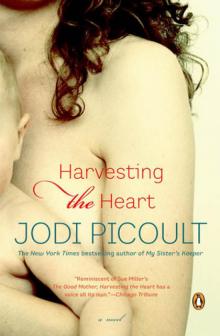 Harvesting the Heart
Harvesting the Heart Change of Heart
Change of Heart Where There's Smoke
Where There's Smoke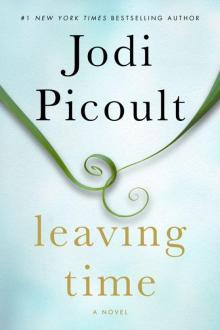 Leaving Time: A Novel
Leaving Time: A Novel Over the Moon
Over the Moon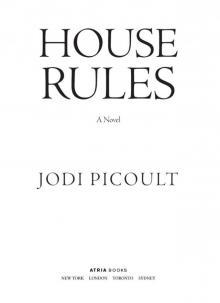 House Rules: A Novel
House Rules: A Novel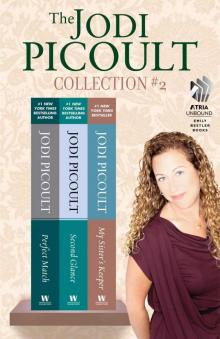 The Jodi Picoult Collection #2
The Jodi Picoult Collection #2 Leaving Home: Short Pieces (Kindle Single)
Leaving Home: Short Pieces (Kindle Single)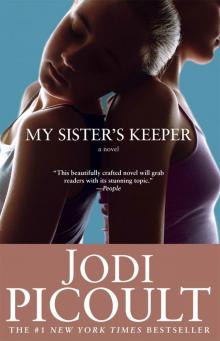 My Sister's Keeper: A Novel
My Sister's Keeper: A Novel![Mermaid [Kindle in Motion] (Kindle Single) Read online](http://i1.bookreadfree.com/i1/04/03/mermaid_kindle_in_motion_kindle_single_preview.jpg) Mermaid [Kindle in Motion] (Kindle Single)
Mermaid [Kindle in Motion] (Kindle Single) The Jodi Picoult Collection #4
The Jodi Picoult Collection #4 Sing You Home: A Novel
Sing You Home: A Novel The Jodi Picoult Collection
The Jodi Picoult Collection Lone Wolf A Novel
Lone Wolf A Novel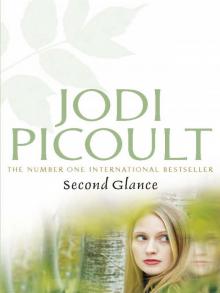 Second Glance
Second Glance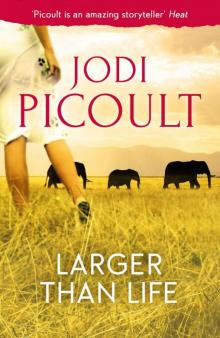 Larger Than Life (Novella)
Larger Than Life (Novella)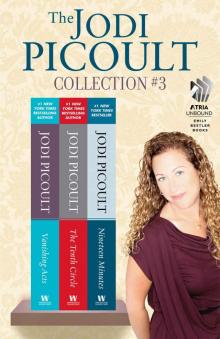 The Jodi Picoult Collection #3
The Jodi Picoult Collection #3